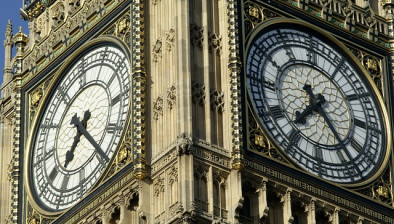NI High Court: Claim PSNI cannot ensure independent investigation into unsolved murders ‘doomed to fail’

Northern Ireland’s High Court has rejected a claim that the PSNI cannot ensure an independent investigation into the unsolved Cappagh murders. The application, brought by the brother of one of the victims under Article 2 of the European Convention on Human Rights, was found to be “doomed to fail”.

About this case:
- Citation:[2022] NIQB 32
- Judgment:
- Court:NI High Court
- Judge:Mr Justice Michael Humphreys
Background
On 3 March 1991, the applicant’s brother, Thomas Armstrong, was one of four men murdered in a terrorist attack at Boyle’s Bar, Cappagh, Co Tyrone. This application for leave to apply for judicial review sought to challenge the “continued failure” by the Chief Constable of the PSNI to investigate the killings.
The Cappagh attack was claimed by loyalist paramilitaries but the applicant argued that state agents were involved in the killings. Several deaths in the Mid Ulster area were said to be linked to an importation of weapons by loyalist paramilitaries in 1987.
The police investigation at the time did not lead to anyone being held accountable for the killings.
In 2005, the applicant and his family were contacted by the Historical Enquiries Team (HET) in relation to its investigation of the Cappagh killings. Their notes claimed that a witness came forward who linked Ulster Defence Regiment (UDR) “soldiers to the case … [he] was a member of the UDR as well”.
Another note stated: “Four others were arrested included three UDR members…Rifle muzzle cover found at scene was similar to one used by British Army/UDR soldiers. Reference was made to sketch of bar being made by UDR patrol possible a week before the attack”.
In September 2014 the HET was wound up and the matter fell into the caseload of the Legacy Investigation Branch (LIB). The applicant and his solicitors asked for a copy of the HET report, but were refused. This, he argued, “shook my confidence in the PSNI as being able to have any independent role in the investigation into the murders of our loved ones … The HET was supposed to have been established to give us the truth, but instead it felt like the PSNI closed it down to prevent the truth coming out.”
In 2020 the LIB shared a copy of the draft HET report with the applicant. This report linked members of the UDR to the murders at Cappagh. Three of the suspects arrested were part-time members of the UDR and had been named in intelligence reports as being involved in the murders.
Following this, the applicant sent a pre-action protocol letter seeking confirmation that a wholly independent police investigation would be put in place in relation to the Cappagh killings. It was claimed that the PSNI lacked institutional and practical independence and any investigation carried out by it would not meet the requirements of Article 2 ECHR.
The response claimed that responsibility for investigation rested with the LIB and denied that the PSNI lacked the requisite independence.
Delay
Proceedings were issued in May 2020. The proposed respondent argued that the application effectively sought to challenge the transfer of the investigation from HET to LIB in 2014 and/or the police investigation which pre-dated that event.
The applicant argued that there could be no delay claim, as there was “continuing illegality” in the form of an ongoing breach of Article 2 rights.
In assessing whether or not there had been delay in bringing the case, the court considered the applicant’s own evidence, and noted that he did not believe the PSNI was sufficiently independent in or around 2012, and this concern was furthered following the closure of HET in 2014.
The grounds to seek relief from the court in respect of this lack of independence therefore arose in 2012 or, at the latest, in 2014. The report from HET which was disclosed in 2020, only confirmed what the applicant knew already following the 2012 meetings.
Therefore, these proceedings could have been commenced at any time within the last 10 years. The court did not accept that there was a “continuing breach” of Article 2.
The application for leave to apply for judicial review was out of time and with no application having been made for an extension of time, it was dismissed.
Article 2 investigation
Despite the delay, the court considered whether the investigation was contrary to Article 2 ECHR. The court noted that an Article 2 investigative obligation can revive a closed investigation where new evidence comes to light in line with the decision in Brecknell v UK [2008] 46 EHRR 42.
The applicant contended that the Brecknell test was met because there was new information in the HET report about suspected UDR members, the use of specific weapons, and a BBC programme interview which claimed that information was provided to loyalists by police officers.
However, the court found that the information in relation to the UDR suspects was known in 2012. This was not “new” evidence. Further, the claim in the BBC series did not relate specifically to the Cappagh attack or those who carried it out.
The court was not therefore satisfied, on the evidence, that the Brecknell test was met.
The PSNI’s independence
Finally, the court considered the challenge to the independence of the PSNI. The UK Supreme Court recently considered this issue in Re McQuillan [2021] UKSC 55.
In McQuillan, it was held that investigative independence was essential but that Article 2 did not require complete hierarchical or institutional independence. The adequacy of independence is a matter to be assessed in all the circumstances of the case rather than analysed in the abstract.
Any challenge to the LIB on the basis of a lack of institutional independence was “therefore doomed to fail”. In McQuillan, a deciding factor was the lack of engagement with the family of the victim. Here, there had been a detailed Family Engagement Strategy as well as a Conflict of Interest policy.
Further, given LIB’s case sequencing model, a review had not yet commenced into the Cappagh killings, and there is a strong presumption that any specific challenge to the independence of such an investigation must await its outcome.
Conclusion
The court concluded that even if the delay point were overcome, the applicant did not establish an arguable case sufficient for the grant of leave to apply for judicial review.
The application was dismissed.












